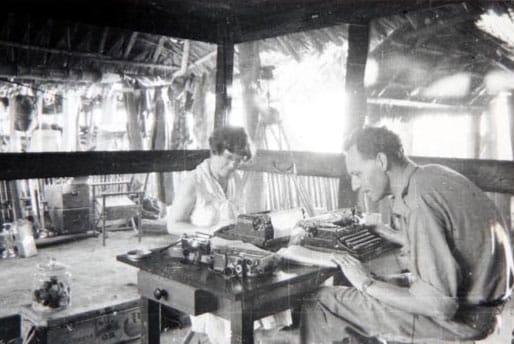Tripping on Utopia: Margaret Mead, the Cold War, and the Troubled Birth of Psychedelic Science
By Benjamin Breen
Grand Central Publishing, 369 pages, $30
The fatal flaw of Soviet Communism, it is often alleged, was its leaders’ belief that human nature could be reengineered. But according to the historian Benjamin Breen’s Tripping on Utopia: Margaret Mead, the Cold War, and the Troubled Birth of Psychedelic Science, an important group of midcentury Anglo-American intellectuals—most of whom were avowedly anti-Communist and closely linked to the US national-security state—were also deeply invested in the deliberate, top-down transformation of human consciousness. And whereas Communist societies largely pursued their utopian goals through the reorganization of the relations of production, their counterparts in the West pursued theirs, in part, through the use of mind-altering substances.
Perhaps more surprisingly, as Breen shows us, these efforts didn’t commence in the psychedelic 1960s, as one would expect, but as early as the 1920s. “Timothy Leary and the Baby Boomers did not usher in the first psychedelic era,” he writes. “They ended it.” The story is an important one, especially because we are now in the midst of a new psychedelic era, in which influential public figures from Michael Pollan to Joe Rogan are avidly promoting the benefits of psilocybin and LSD, scientists are exploring their therapeutic applications, and cities and states are decriminalizing possession of them. The early history of psychedelic science charted by Breen is therefore essential to anyone seeking to chart out the future of drug use in America.
“Both Mead and Bateson wanted to prevent another great war.”
